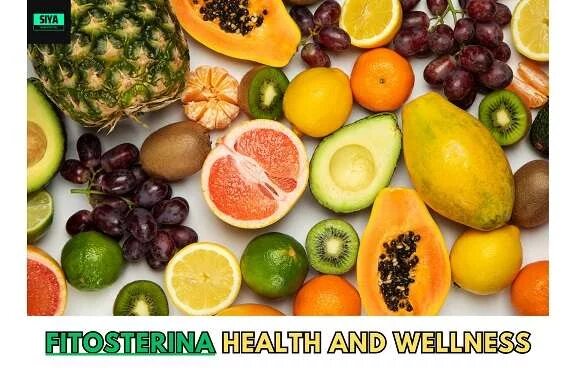
Introduction
Fitosterina, a term that may not be familiar to everyone, holds significant importance in the realm of natural health supplements. This article explores Fitosterina’s various aspects, from its natural sources to its impact on human health, providing a thorough understanding of why it is highly valued in nutrition science.
What is Fitosterina?
Fitosterina, commonly referred to in scientific circles as phytosterols, are compounds found naturally in the cell walls of plants. Similar in structure to cholesterol, they play a crucial role in plant biology and have been found to provide numerous health benefits when consumed by humans.
The Source and Nature of Fitosterina
Naturally occurring in vegetables, fruits, nuts, and seeds, Fitosterina can be a part of daily diet through these common foods. Understanding its natural occurrence helps consumers identify dietary sources that are rich in these beneficial compounds.
Key Benefits of Fitosterina
Fitosterina has been researched extensively for its potential health benefits. These include lowering cholesterol levels, improving heart health, and even offering some benefits in managing blood sugar levels, making it a valuable component of a health-conscious diet.
How Fitosterina Impacts Human Health
Cardiovascular Benefits
Research has shown that Fitosterina can lower bad LDL cholesterol by partially blocking its absorption in the digestive system, which can lead to a reduced risk of heart disease.
Effects on Cholesterol Levels
Regular intake of Fitosterina-enriched foods can reduce overall cholesterol levels by 10% to 15%, according to various studies. This effect is particularly beneficial for individuals looking to manage their cholesterol naturally.
Fitosterina and Diabetes Management
Emerging research suggests that Fitosterina may have a role in managing diabetes by aiding in blood sugar regulation, although more studies are needed to fully understand this relationship.
Practical Uses of Fitosterina in Daily Life
Dietary Sources of Fitosterina
Everyday foods like sunflower seeds, almonds, and wheat germ are excellent sources of Fitosterina. Incorporating these foods into meals can help increase Fitosterina intake naturally.
Supplements and Fitosterina
For those unable to meet their Fitosterina needs through diet alone, supplements are available. However, it is essential to consult with a healthcare provider before starting any new supplement regimen.
Research and Studies on Fitosterina
Recent Advances in Fitosterina Research
The latest research on Fitosterina continues to uncover its potential benefits in health, especially its role in disease prevention and management. Studies are increasingly focusing on how it can be used to mitigate chronic conditions, showcasing its importance in nutritional science.
Controversies and Challenges
While the benefits of Fitosterina are widely acknowledged, there are controversies regarding its efficacy and safety in high doses. It’s crucial for potential users to be aware of these debates and understand the scientific consensus to make informed decisions.
How to Integrate Fitosterina into Your Diet
Simple Dietary Changes
Incorporating Fitosterina into your diet doesn’t require drastic changes. Simple adjustments, like opting for sterol-enriched spreads over regular ones or choosing whole grain products, can significantly increase your Fitosterina intake.
Recommended Daily Intake
While there’s no universally agreed-upon daily intake for Fitosterina, most studies suggest that 2 grams per day is effective in lowering LDL cholesterol levels. Always consult a healthcare professional to tailor the intake to your personal health needs.
Future Prospects of Fitosterina
Innovations in Fitosterina Extraction
Technological advancements are making it easier and more cost-effective to extract Fitosterina from plant sources, which could lead to more accessible and diverse products on the market.
Potential New Uses for Fitosterina
As research progresses, new uses for Fitosterina are being discovered, including its potential role in cancer prevention and immune system support. The future looks promising for this natural compound.
FAQs: Common Questions About Fitosterina
Answering Your Fitosterina Queries
- What are the main sources of Fitosterina?
- How does Fitosterina help lower cholesterol?
- Are there any risks associated with consuming Fitosterina?
- How much Fitosterina should I take daily?
- Can Fitosterina help with conditions other than high cholesterol?
- Where can I buy Fitosterina supplements?
Each of these questions can be explored further, providing readers with in-depth answers that help them understand the role and benefits of Fitosterina more comprehensively.
Conclusion
Fitosterina offers a natural way to enhance health, particularly in reducing cholesterol and potentially managing other health conditions. By understanding its sources, benefits, and the latest research, individuals can make informed decisions about incorporating Fitosterina into their diets. As always, consultation with healthcare providers is recommended to tailor any supplement use to your specific health needs.
